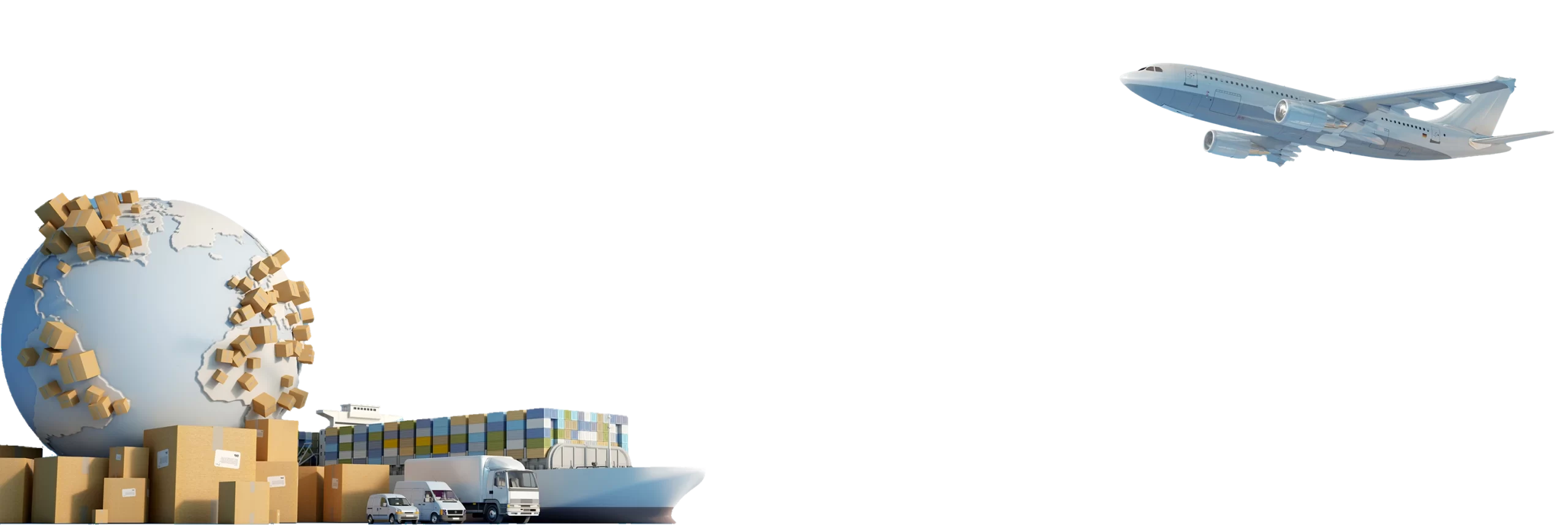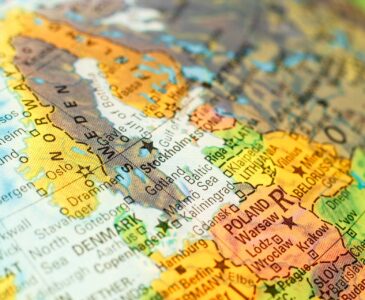Stepping onto unfamiliar soil and immersing oneself in a new culture marks the beginning of an extraordinary journey – one of adjusting to a new country and embracing the experiences it offers. The adventure of relocating abroad is a blend of excitement, challenges, and personal growth. It involves not just adapting to new customs and surroundings but also delving into the essence of a diverse society. Here is some advice on how to navigate the challenges ahead.

Adjusting to living in a new country involves a dynamic journey of integration and growth. Common challenges like language barriers and cultural adjustments can be addressed through resources such as language classes and expat communities. Supporting children in new schools and maintaining connections to home culture require proactive approaches. Navigating work, healthcare, and social networks demands research and adaptability. Managing emotions like homesickness involves seeking support and engaging in familiar activities.
Initial Steps in Adjusting to a New Country
Embarking on a journey of relocating to a new country requires a series of initial steps that pave the way for a smooth transition and an efficient relocation. The first challenge often involves overcoming the logistical aspects of the move, such as obtaining the necessary visas and permits and ensuring proper documentation.
Arriving in an unfamiliar land can be overwhelming, but setting up a support network, whether through expat groups, social media, or local acquaintances, can greatly ease the transition. These initial stages involve acclimatizing to the new environment, adjusting to the time zone, and combating jet lag. As one gradually embraces the new rhythm of life, the stage is set for diving into the practical arrangements and cultural exploration that lie ahead.
Handling Practical Arrangements – Housing, Banking, and Utilities
Establishing a sense of stability in a foreign country necessitates efficiently handling practical affairs. Securing suitable housing tops the list, as it provides a base for daily life. Whether opting for temporary accommodations initially or delving into the local real estate market, finding a comfortable abode is crucial.
Simultaneously, navigating the financial landscape becomes imperative, involving opening a local bank account, understanding the currency, and comprehending the local taxation system. Handling utilities, such as electricity, water, and internet connections, demands an understanding of local service providers and procedures.
Understanding Local Customs and Etiquette
The beauty of relocating to a new country lies in discovering the rich tapestry of customs and etiquette that shapes its social fabric. Each corner of the world has its unique cultural norms, traditions, and mannerisms. Taking the time to understand and respect these customs fosters not only a sense of belonging but also helps deal with culture shock. From greetings and gestures to dining etiquette and social norms, embracing these subtleties showcases a genuine interest in the local culture and demonstrates a willingness to integrate.
Navigating Transportation and Local Services
Mastering the art of getting around in an unfamiliar place is vital for independence and exploration. Understanding the local transportation system, whether it’s public transit, ride-sharing services, or cycling lanes, empowers individuals to seamlessly traverse the urban landscape.
Additionally, acquainting yourself with local services such as healthcare facilities, emergency numbers, and convenience stores can prove invaluable in times of need. Exploring these aspects not only ensures a sense of security but also helps in becoming an active participant in the local community.

Building Social Connections in a New Country
One of the most rewarding aspects of embracing life in a new country is the opportunity to build meaningful social connections. Establishing a sense of belonging often begins with connecting to local community groups and expatriate communities. These networks not only provide a sense of familiarity but also serve as platforms for sharing experiences, seeking advice, and forming friendships.
Engaging in social activities and networking events tailored to one’s interests helps in breaking the ice and meeting like-minded individuals. Navigating the intricate dynamics of forming friendships in a foreign land requires openness, patience, and a willingness to step out of one’s comfort zone.
Finding Local Community Groups and Expatriate Communities
In unfamiliar surroundings, finding one’s place within the local community is pivotal. Participating in local community groups, whether centered around hobbies, sports, or volunteering, offers a chance to interact with residents, understand local customs, and contribute to the community.
Simultaneously, engaging with expatriate communities can provide a support network that understands the unique challenges of adjusting to a foreign culture. These communities often organize events, workshops, and social gatherings that foster connections and help newcomers navigate their new environment. Balancing participation in both local and expatriate circles can offer a well-rounded experience and enrich one’s understanding of the host country’s culture.
Engaging in Social Activities and Networking Events
Embracing a new social life involves active participation in social activities and networking events. Whether it’s attending cultural festivals, language exchange meetups, or sports clubs, these engagements create opportunities to meet diverse people and share interests. Networking events, both professional and social, provide a platform to connect with individuals from various backgrounds, including locals and fellow expatriates.
Supporting Family Members in Making New Friends
Adjusting to another country is a journey that involves the entire family. While individuals focus on their own social connections, it’s equally important to support family members, especially children and partners, in making new friends.
Enrolling children in local schools or extracurricular activities provides them with opportunities to interact with peers and integrate into the local educational system. For partners, participating in expatriate groups, community gatherings, or pursuing personal interests can lead to meaningful friendships. Strengthening family bonds and connections within the new community helps create a supportive environment that enhances the overall experience of moving abroad.
Career and Education Adjustments
Moving overseas and transitioning to a new country often entails navigating changes in both career and education paths. Finding a job and adapting to the workplace culture and expectations of the host country is paramount. This involves understanding communication styles, hierarchies, and professional norms. For families moving with children, enrolling them in local schools or exploring educational opportunities becomes a priority.
Adjusting to a different education system requires careful consideration and ensuring a smooth transition for young learners. Additionally, adults may find themselves presented with opportunities for professional development or further education. Embracing these prospects not only enhances career prospects but also contributes to personal growth and deeper integration into the new society.
Adapting to Workplace Culture and Expectations
Entering the workforce is one of the main goals for adjusting to a new country. It introduces individuals to a diverse set of professional norms and expectations. Adapting to the workplace culture involves understanding communication styles, punctuality, dress codes, and the unwritten rules that govern interactions. Navigating through these nuances requires openness and a willingness to learn.
Building effective relationships with colleagues and superiors is essential for both personal growth and career advancement. By assimilating into the new work environment while also contributing unique perspectives, individuals can contribute positively to their team and establish a fulfilling professional journey.
Enrolling Children in School or Finding Local Educational Opportunities
For families, ensuring a seamless educational transition for their children is crucial. Researching and enrolling children in local schools provides them with a chance to immerse themselves in the local culture, make friends, and learn a new language.
Understanding the curriculum, extracurricular activities, and support systems in place is crucial for an efficient move and successful adjustment. Alternatively, some families may choose international or bilingual schools to maintain continuity in education. Balancing the academic and social needs of children contributes significantly to the overall family experience.
Pursuing Professional Development or Further Education
Relocating abroad can also offer adults the opportunity to further their professional development or pursue additional education. Engaging in courses, workshops, or certifications relevant to their field can enhance career prospects and facilitate integration into the local job market.
Additionally, the chance to embark on further education, such as enrolling in a local university, can broaden horizons and deepen one’s understanding of the host country’s academic landscape. These avenues not only contribute to personal growth but also showcase a proactive approach to embracing change and thriving in the new environment.

Embracing the Culture While Adjusting to a New Country
Embracing a new culture is at the heart of a transformative experience while adjusting to life in a foreign country. It begins with a commitment to learning the language, a key to unlocking deeper connections with locals and fully engaging in the cultural tapestry. Participating in cultural events, festivals, and celebrations introduces individuals to the rhythms and traditions of their new home.
Learning the Language and Participating in Cultural Events
When it comes to what are some of the biggest obstacles to adjusting to life in a new country, mastering the local language is one of them. Language learning isn’t solely about communication; it’s about breaking the language barrier and understanding the nuances, idioms, and social cues that shape interactions. Enrolling in language classes or engaging in language exchange programs accelerates this process.
Additionally, actively participating in cultural events — such as religious ceremonies, art exhibitions, and local gatherings — creates opportunities to witness and partake in the traditions that define a community. By bridging the linguistic and cultural gaps, individuals can form deeper connections, forge friendships, and truly immerse themselves in their new environment.
For a more detailed look at why learning languages is useful, have a look at the following video.
Exploring Local Cuisine, Music, and Traditions
Cultural immersion extends to savoring the flavors, rhythms, and traditions of a new country. Exploring the local cuisine offers a taste of history and identity, providing insight into regional ingredients and cooking techniques. Likewise, embracing local music and dance traditions enriches the experience by connecting individuals to the heartbeat of their culture.
Engaging with art, crafts, and traditional practices offers a glimpse into the soul of the society. Balancing respect for these traditions with a willingness to participate allows newcomers to become active participants in the vibrant life of their adopted home.
Balancing Integration With Maintaining Connections to Home Culture
Adjusting to a new culture need not entail severing ties with one’s home culture. Balancing integration with maintaining connections to one’s roots allows for a holistic sense of identity. Celebrating holidays, preparing familiar recipes, and sharing stories from home can provide comfort and a sense of continuity. Finding communities of fellow expatriates or individuals from the same cultural background can offer a space for shared experiences and a sense of belonging.

Health and Well-Being During the Transition
Prioritizing health and well-being during the transition is a relocation essential for a successful adjustment. Accessing healthcare and understanding health insurance options are vital steps. Familiarizing oneself with local medical facilities, doctors, and emergency services ensures that health needs are met. Recognizing and managing culture shock or homesickness is also crucial.
These emotions are a natural part of the adjustment process, and seeking support from friends, family, or professionals can greatly assist in navigating these challenges. Additionally, maintaining physical and mental well-being through staying active, pursuing hobbies, and practicing mindfulness all contribute to a positive and resilient mindset during this transformative phase.
Accessing Healthcare and Understanding Health Insurance Options
Ensuring access to healthcare services is of paramount importance when relocating. Researching the local healthcare system, understanding the procedures for seeking medical assistance, and knowing how health insurance works are crucial steps. Enrolling in a suitable health insurance plan that covers medical expenses and emergencies offers a safety net. Familiarity with local pharmacies, clinics, and hospitals ensures that individuals and families can address their health needs with confidence and peace of mind.
Recognizing and Managing Culture Shock or Homesickness
The emotional journey of adapting to another place can bring about culture shock or homesickness. These feelings are normal responses to significant life changes. Recognizing the signs and seeking support from fellow expatriates, counselors, or support groups can aid in managing these emotions. You can also seek help online on sites like BetterHelp.
Engaging in activities that bring comfort, maintaining connections with loved ones back home, and keeping an open mind about the new culture can help alleviate feelings of relocation stress, isolation, and uncertainty. Over time, as individuals become more familiar with their surroundings, these emotions tend to evolve into a deeper sense of belonging.
Staying Active and Taking Care of Mental Well-Being
Maintaining an active lifestyle and tending to mental well-being contribute to a smoother adjustment process. Engaging in regular physical activity not only boosts physical health but also releases endorphins that improve mood and reduce stress. Exploring the new environment, taking walks, or participating in local sports can be invigorating.
Additionally, nurturing mental well-being involves practicing mindfulness, meditation, or yoga. Cultivating positive habits and seeking moments of tranquility in the midst of change fosters resilience and equips individuals to embrace their new life with a clear and positive mindset.

Hire International Movers to Assist You With the Move While You Are Taking Steps in Adjusting
Amidst the whirlwind of how you are adjusting to life in a new country, enlisting the shipping overseas services of an international moving company can provide invaluable support during the transition. Entrusting the logistical aspects of the move to professionals and hiring an overseas moving company allows you to focus on acclimating to the new environment.
Service module: overseas vehicle shipping, moving insurance, custom crating
An overseas shipping company brings expertise in handling the complexities of cross-border relocations, ensuring a safe move as well as efficient packing and transportation of your belongings.
From packing services and shipping either by sea or by air freight to customs clearance and delivery, their comprehensive services ease the burden of relocation logistics and make the move easier. With the practical aspects managed by experts, you can dedicate your time and energy to making a seamless transition, all the while knowing that your possessions are in capable hands.

Embracing the Journey of Cultural Integration and Personal Growth
In conclusion, the journey of cultural integration and personal growth signifies a transformative experience that fosters empathy, resilience, and open-mindedness. Navigating diverse traditions challenges us to adapt and thrive, forging connections and immersing ourselves in unfamiliar cultures. Hiring professional movers can immensely help ease the transition, so contact us and allow My International Movers to handle all aspects of your international relocation.
FAQ
How Long Does It Typically Take To Adjust to Living in a New Country?
The timeline varies widely among individuals. While some might feel comfortable within a few months, others may take a year or more to fully adapt to the new environment and culture.
What Are the Most Common Challenges When Adjusting to a New Country?
Common challenges include language barriers, cultural differences, homesickness, navigating bureaucracy, and establishing a new social network. Adapting to new work environments and education systems can also be demanding.
How Can I Support My Children in Adjusting to a New School Abroad?
Support your children by involving them in the decision-making process, researching schools carefully, visiting the new school before enrollment, maintaining open communication, encouraging extracurricular activities, and connecting them with other expat children.
Are There Resources to Help With Learning the Local Language?
Yes, many resources are available, such as language classes, apps, online courses, language exchange groups, and local language schools. These resources can aid in mastering the local language for better integration.
How Do I Maintain Connections to My Home Country While Embracing the New Culture?
Keep in touch and stay connected by using technology for communication, celebrating your home country’s holidays and traditions, finding expatriate groups, and forming a balance between embracing the new culture and preserving your roots.
What Should I Know About Working in a New Country?
Research the local work culture, employment regulations, and business etiquette. Networking and learning about workplace norms will help you adapt successfully to the professional landscape.
How Can I Find Healthcare Providers in a New Country?
Research local healthcare systems, ask for recommendations from locals or expats, consult your embassy for information, and ensure you have comprehensive health insurance to cover medical expenses.
What Are Some Tips for Making Friends and Building a Social Network Abroad?
Engage in local activities and events, join clubs or groups aligned with your interests, use social media platforms, volunteer, attend language exchange meetups, and maintain an open and approachable attitude.
How Do I Manage Feelings of Homesickness or Culture Shock?
Stay connected with loved ones through technology, seek support from local expat communities, engage in familiar activities, and give yourself time to adjust. Seeking professional help is also an option if needed.
Can I Bring My Pets When Moving to a New Country, and What Are the Considerations?
Relocating with pets depends on the country’s regulations and requirements. Research quarantine laws, vaccinations, and necessary paperwork. Additionally, consider your pet’s comfort and well-being during the transition.















